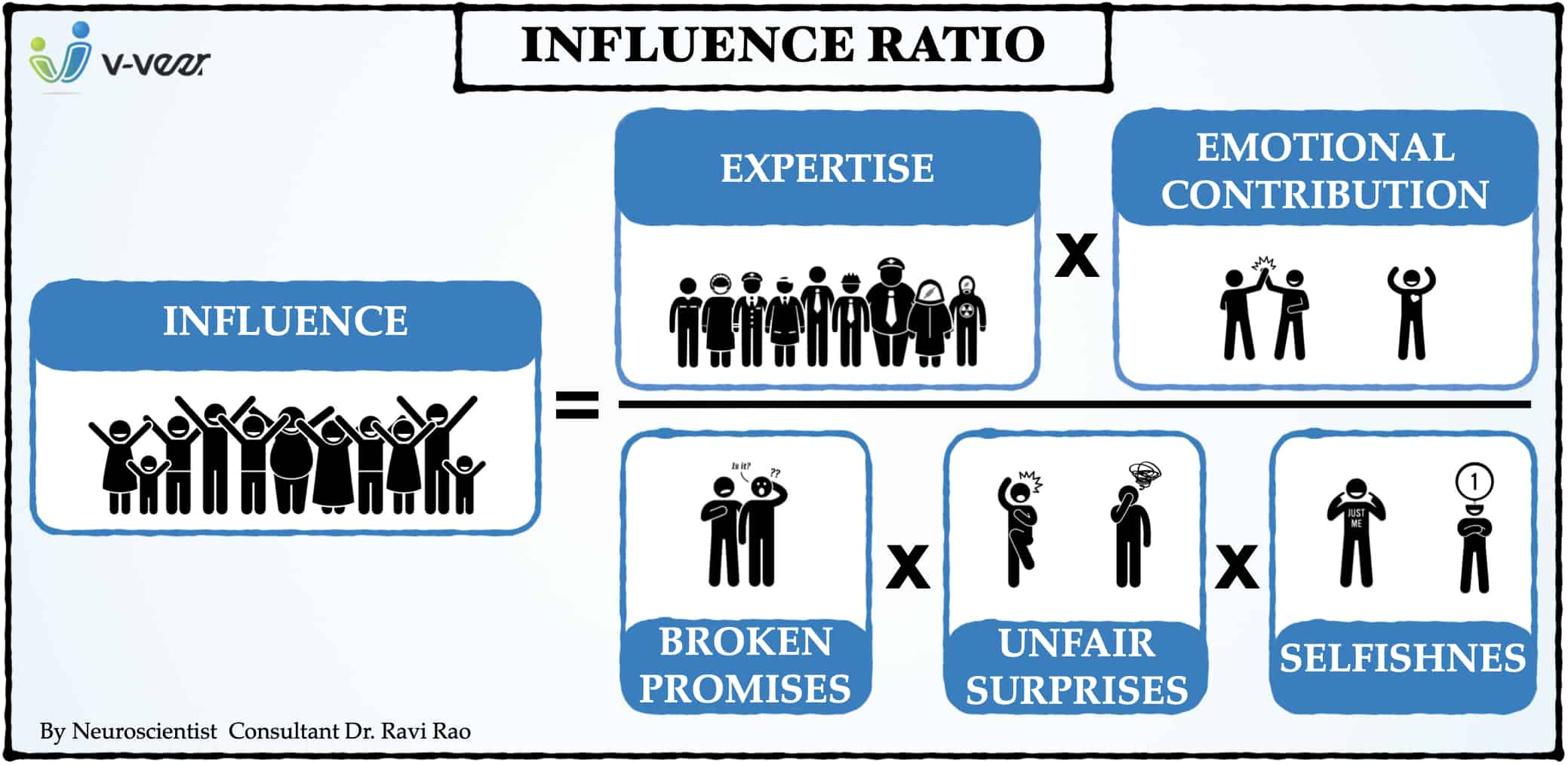

How do I inspire others? How do I get people to buy-in into my idea? These are questions that almost everyone asks themselves when planning to announce a new idea or initiative, or embark on a new project or transformation.
Have you ever wondered why some people gather more followers and believers to achieve a certain goal or deliver a required change, while others struggle? What drives people to listen and engage with a leader? Why do some leaders have a huge positive impact amongst the organisation? All this boils down to how much emotional impact a person has on others that drives the influence. The word influence here is focused on inspiring others and get people onto your idea.
According to neuroscientist-consultant Dr. Ravi Rao of Los Angeles, there are 5 elements in the influence equation that will decide the emotional impact you have on others. These elements are expertise, emotional contribution, broken promises, unfair surprises and selfishness. Expertise and emotional contribution formulate the numerator of the equation while broken promises, unfair surprises and selfishness formulate the denominator. Let’s look into each of these elements what it means and how can we improve it.
Expertise: is mastering a specific technique or skill by spending years building knowledge and practice to gain confidence. As an expert you are the go-to person for help or advice. People will listen to you and trust you. As the first element of the influence equation you need to ask “Do you have a reason for others to listen to you?”. Expertise can be recognised in some cultures by academic degrees, certificates and prior experience and in other cultures as being creative and the ability to have novel ideas.
Emotional Contribution: is understanding the dynamics within a group and execute certain roles to meet individual emotional needs. It is the act of looking out for people and contributing to their emotional needs. Emotional contribution can be fulfilled by understanding the different ways to listen, how to connect people in different ways, and recognising the vulnerability of people and how to help build resilience.
Broken Promises: generate a negative experience where you do not keep your part of the agreement. The value of a promise is derived from the element of certainty and expectation you create with the other person. Breaking promises does not only result in disappointing other people but more importantly losing trust. The broken promises can be very small things such as a promise of delivering a report by a certain day but handing it in a 1 day later, or not sharing a piece of information as agreed. No matter how small the ‘broken promises’ are, they leave big impressions in people’s minds.
Unfair Surprises: is the activity of going on your own to do something without telling anybody else that you are doing it. This type of actions can create the neurological fear response of “I can’t predict what this person will do”. It also can evoke the emotions of stress and frustration in people. An example of an unfair surprise can be that the manager makes a decision before a presentation to senior management by two hours to add some items into the presentation that has been agreed to be removed. Another example can be that a manager requests to change the content of launch material that was already agreed on going into production.
Selfishness: is being self-centred and blinded by the pursuit of growth to oneself. This is expressed by using phrases like “my work”, “my contribution”, “ I did…”, “I achieved…”. This type of behaviour tends to highlight one’s accomplishment, and bring attention to their own ideas and proposals while ignoring the team they work with and others. The selfishness behaviour belittles other employees and take credit for the team’s successes. One act to work on to improve the selfishness element is to change the language you use to include more of the group and team. This is expressed by using phrases like “we did..”, “our achievement”, “ this has been completed by us”.
By now you might have realised that expertise and emotional contribution (numerator) attract people towards you and increases your value, while broken promises, unfair surprises and selfishness (denominator) detract your value and push people away. Like any mathematical equation to improve your result you can do several things, work on the numerator and increasing its value, decreasing the denominator, or better work on both.
As a leader, project manager, change agent or anyone who will lead others you need to be aware of these 5 factors and work on them consciously and proactively to be able to succeed in influencing and inspiring others.


